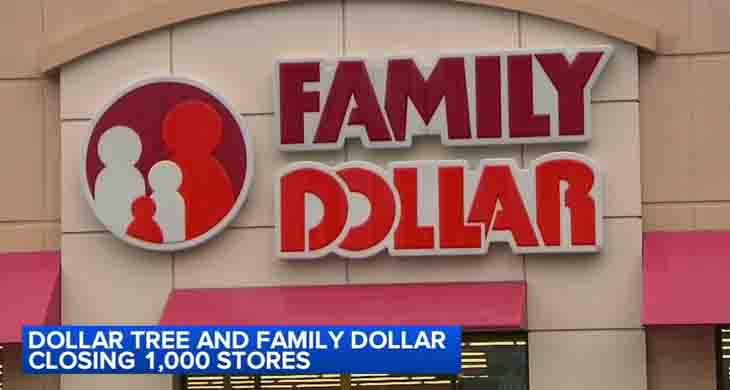Nearly 1,000 Family Dollar and Dollar Tree locations are set to close over the next several years, an announcement that stands to disproportionately impact communities where discount stores have pushed out local grocers.
Dollar Tree Inc. announced in a Wednesday earnings report it will close 970 “underperforming” Family Dollar stores. That includes about 600 Family Dollars and 30 Dollar Trees set to close once their current leases expire.

The corporation opened 219 new stores in the fourth quarter, bringing full-year new store openings to 641.
Dollar Tree Inc. did not immediately respond to NewsNation’s request for comment concerning how the closures might impact so-called “food deserts,” where grocery options have dwindled as a result of competitive discount store pricing.
The number of independent grocers significantly declines when new dollar stores enter a neighborhood, according to research from the University of Toronto and the University of California, Los Angeles. The impact is equal to the loss of about one grocery store for every three dollar stores within a 2-mile radius.
When communities lose grocery stores in exchange for dollar stores, shoppers buy about 4-7% less fresh produce. The study suggests that that decline is significantly steeper for low-income households.
“With these stores closing, I would honestly be significantly concerned with the availability of whole foods for the individuals in those areas and if they have access to any other source of food within a similar kind of mile radius,” said Kelli George, a registered dietitian and the dietetics program director at West Virginia University.
In cities such as Buffalo, New York, politicians had already called for new grocers to open.

Sen. Kirsten Gillibrand, D-N.Y., has been advocating for a new grocery store on the city’s east side to supplement one of the area’s only grocers, Tops. The senator wants to double funding to end food deserts, but convincing new stores to move in has had its challenges.
“They’ll say something like, ‘Well, we have one two miles away,’” Gillibrand told NewsNation affiliate WIVB in January before Dollar Tree Inc. announced its planned closures. “Well, two miles away doesn’t help the person who doesn’t have a car.”
Stores often opt to open new locations in more affluent neighborhoods, where shoppers may spend more money, she told WIVB.
As the prices of basic goods climbed in recent years, dollar stores began seeing new clientele. A majority of Dollar Tree’s new customers recorded over the previous year came from households that made about $80,000, the company’s CEO, Mike Witynski, said during an August 2022 earnings call.
In response to concerns about options and accessibility of fresh food and produce, some communities have implemented zoning laws to keep dollar stores away. Others have denied the construction of new stores based on community health concerns, instead emphasizing urban farming opportunities to retain access to fresh produce.
Some farmers’ markets also accept SNAP benefits, making fresh food more affordable and accessible.
“A lot of them will also double their dollars,” George said. “So if they cash out $20 of their monthly SNAP benefits, they’ll be able to receive $40 worth of produce at a farmers market. Even just expanding knowledge about that — if farmers markets already do exist in an area — could be great.”










